Six Sex’s bimbo existentialism
In this bilingual interview, the Argentinian queen of the perreo rave talks about the bimbofication of the no-space, slutty anarchist patriotism, and her new album X-Sex.
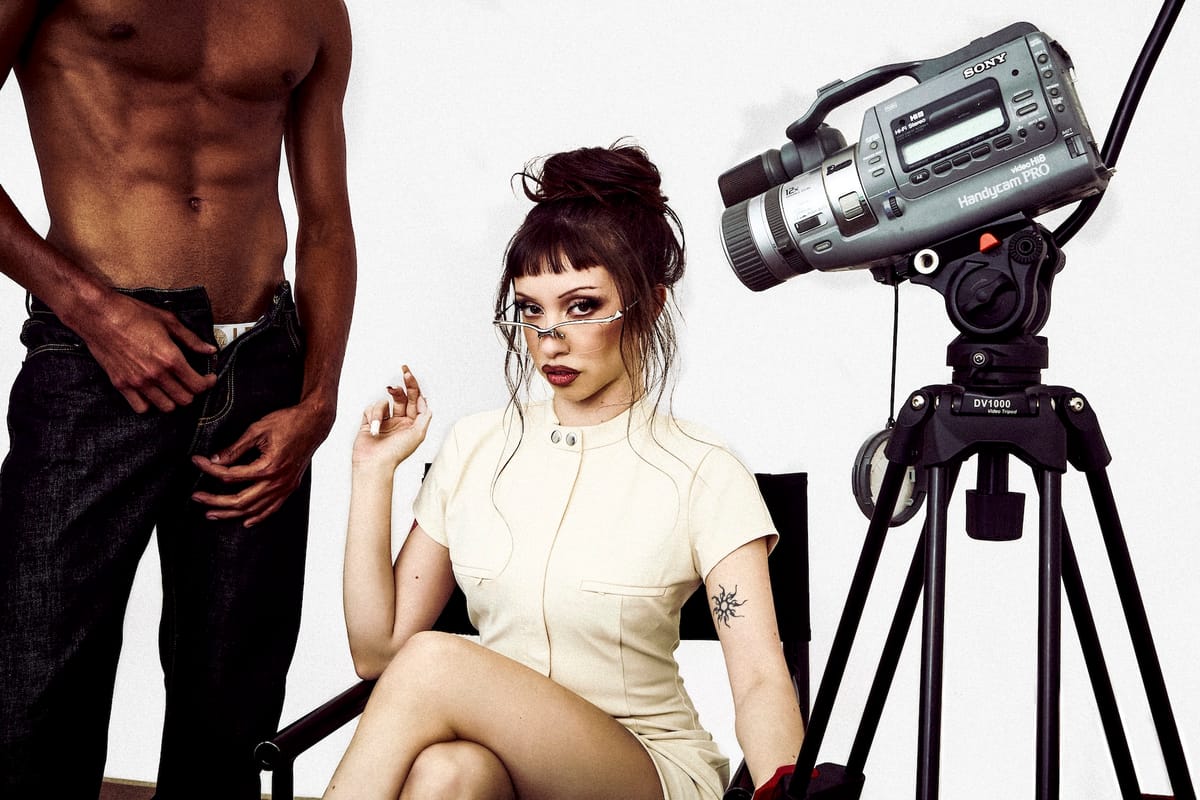
Words E.R. Pulgar
Photo: Bryan Flores, Styling & Creative Direction: Francisco J. Rondon, Makeup: Emilio Becerril, Hair: Omar Alvarez
The day after Pope Francis died, I had a virtual audience with the newly-crowned “most important and influential Argentinian alive” – and no, it’s not Messi. When Francisca Cuello finally appears on Google Meet, fresh off a doctor’s appointment, she’s keeping it lowkey in glasses and a cap, more Clark Kent than Superman. In Cuello’s case, when she becomes Six Sex, it’s not so much what comes on but what comes off, though she’s trying to give something else in this new era.
“This was supposed to be the EP where I had clothes on,” she says with a chuckle about halfway through our conversation. “We wanted to have these moments that were giving ‘high fashion bitch’ and I wasn’t going to have my ass out. Compared to other videos, this is true. But then, when you’re in the moment, it’s like…fuck it.”
Six Sex has spent the better part of the year on tour, preaching the gospel of perreo mixed with techno to slutty flocks from Europe to South America, including sold-out shows in Mexico and her native Argentina. She’s got a few more dates left in Europe before a well-deserved break. Kicking off the year with the release of a new six-song set called X-Sex, where she returns to her rave maven origins, the Argentinean underground diva has decidedly gone global.
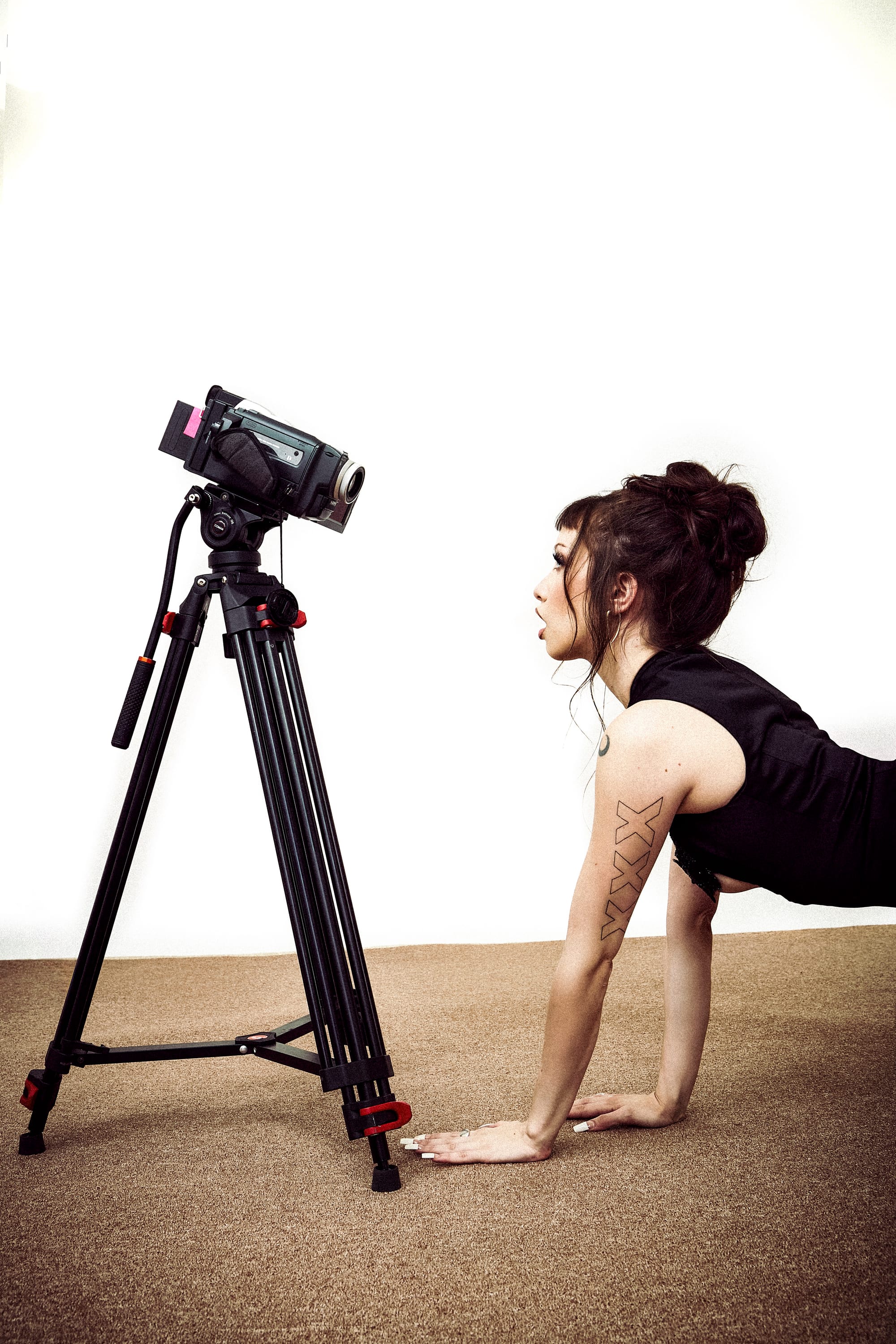
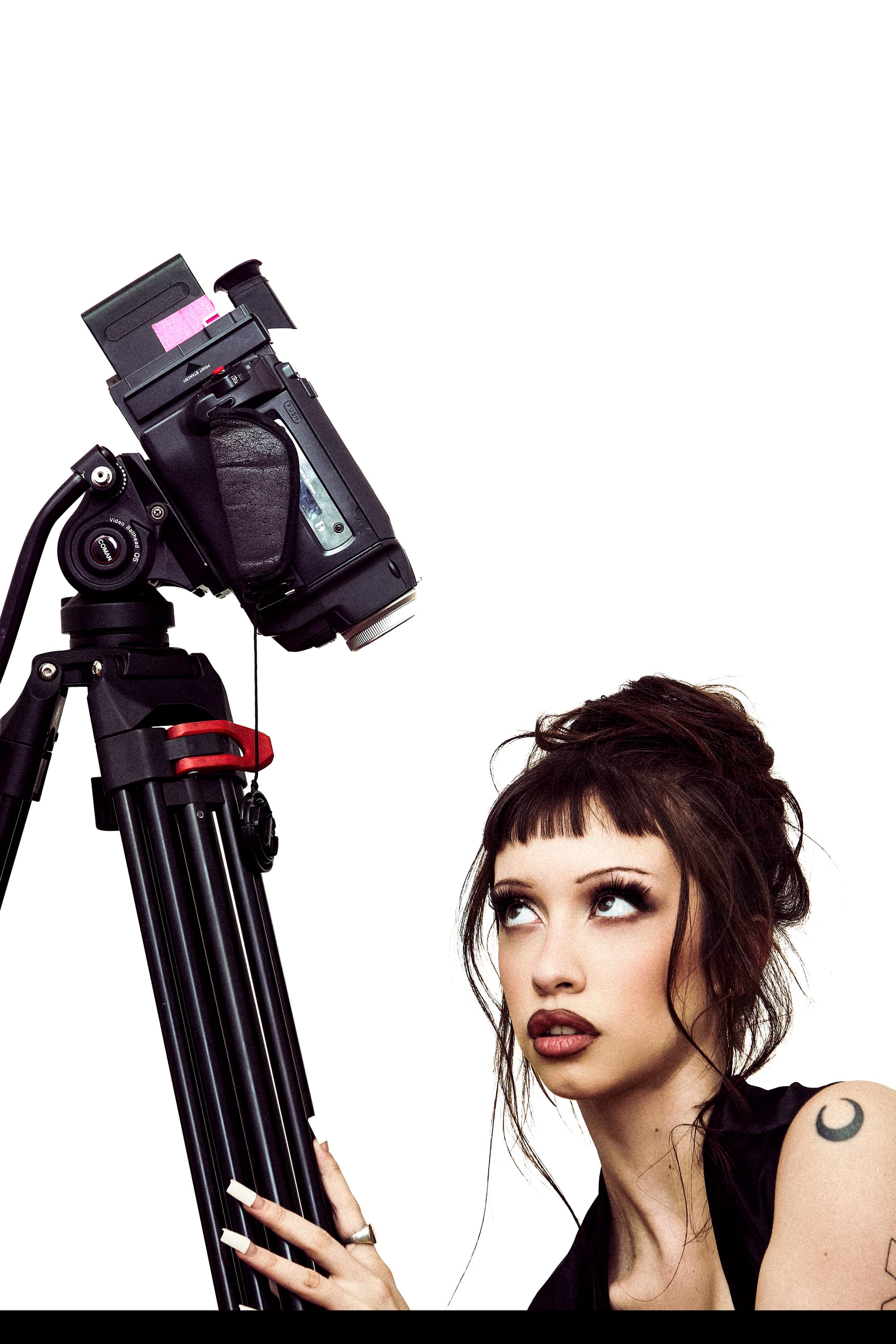
She spent the last few years bubbling up in the Latin American underground, not-quite associated with Latin Club and neoperreo (queer and femme-led reggaeton subcultures) but playing with a range of techno and reggaeton sounds in both English and Spanish. Six Sex released a slew of EPs, including collaborations with scene luminaries like Ms Nina, Isabella Lovestory, and Merca Bae. With the advent of Brat and Eusexua, which catapulted rave aesthetics and sounds into the pop mainstream, Six Sex found herself in front of a larger audience drawn to Satisfire, a collection of unabashed tracks made for thotty hotties that came out a year before Charli XCX or FKA Twigs’ sweatiest releases to date.
Before becoming a key global proponent of popper-sniffing music and sexual liberation, Six Sex was a promiscuous rave girl from the western Buenos Aires provincial suburb of Villa Tesei, partying from a young age and dreaming of escaping a small town doing something she loved. She tapped in with the local club scene, where she drew sonic inspiration and community. The videos from Satisfire, set in a party, were all shot in a club her and her friends (who all serve as extras in the video) used to frequent, her pouty hentaisms and cheeky double-entendres set to the tune of hard bass, rattling electronically-murked dembow and high-powered pop beats built for thrashing the night away.
By contrast, the audiovisual proposal for X-Sex draws from a minimalist void. All the videos, from Dillom-assisted rager “Tócame” and raucous “U&ME” with Dauner and Luca Eck – where she struck comedic gold with now emblematic line “My boyfriend is gay/ My baby is shit/ My name is Six Sex/ My ass is too big” – to baddie clarion call “Bitches like me” (which vibrates with a beat reminiscent of Kylie Minogue’s legendary “Can’t Get You Out Of My Head”), conjure different white cubes filled with a myriad of characters: gay boyfriends, fellow baddies in short-shorts, and mechanical bulls. The bimbo existentialist no-spaces the world of X-Sex exist in were partially drawn from Six Sex spending way too much time on airplanes in the company of safety instructions.
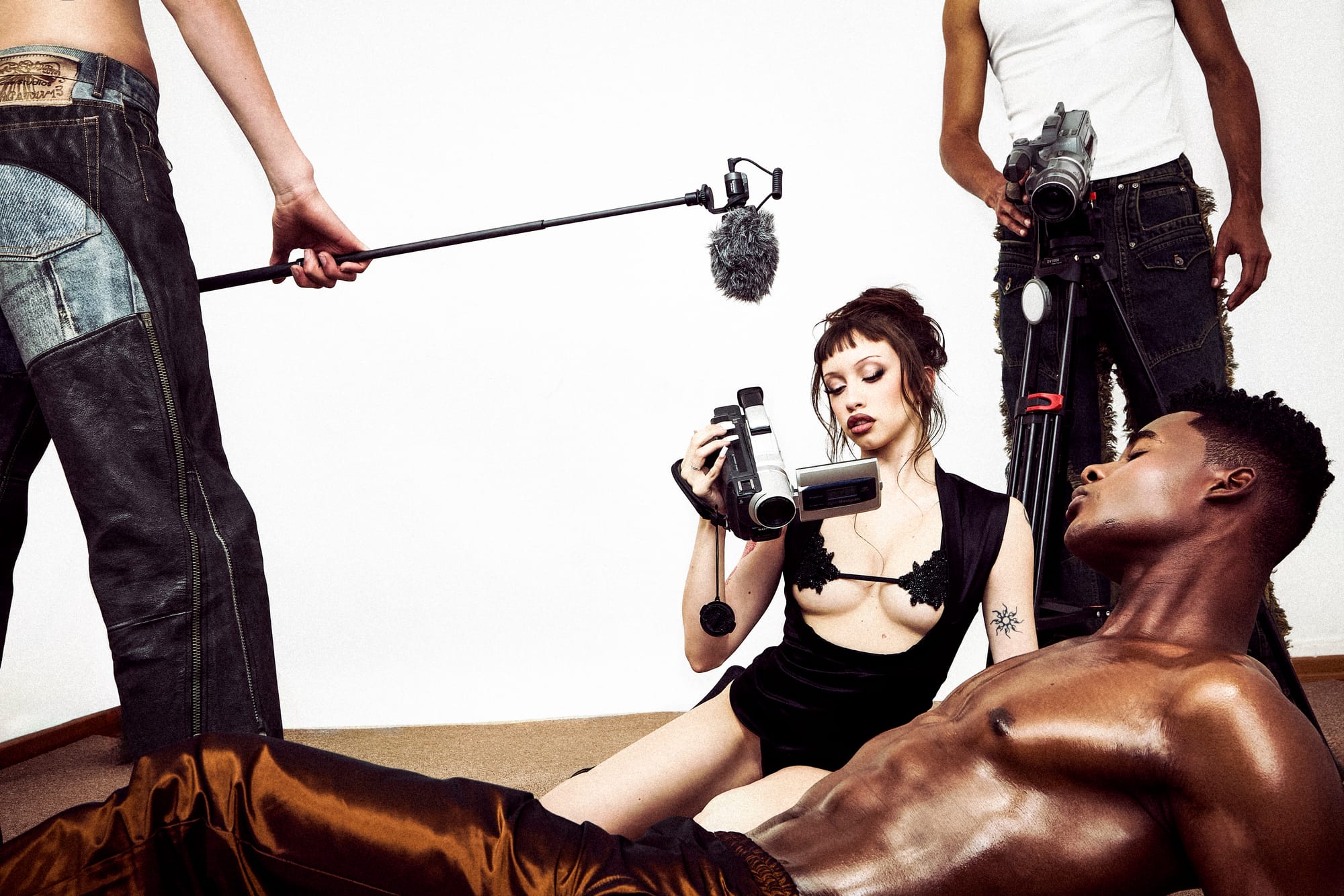
“I was travelling a lot, taking a lot of short planes, and I always had these instructions in front of me,” she said. “There would be blank white pages with little black letters, red arrows that pointed at emergency exits, other arrows pointing at other places. I sent [Leandro Vazquez, Six Sex’s creative director”] photos and said ‘this is the new EP’.”
In a way other emerging and established pop stars often don’t, Six Sex is unafraid of pushing buttons. She laughs at controversy, from her lyrics to her name, which has given her trouble on the Internet since the beginning to the point that she has a second Instagram to let fans tag her and prevent the algorithm from blocking her from her account (which it has, twice). “It was awful at the beginning because I would post anything and people would look up ‘six sex’ and of course it was all porn,” she quips.
In a particularly memorable hometown show at C Art Media in Buenos Aires at the beginning of this year’s tour, she sang the national anthem with fellow Argentinian rising pop girlies Fiah, Chita, Juana Rozas, and Vera Frod scantily-clad in matching white outfits topped with a blue and white scarf with yellow tassels, imitating their presidential sash. She’s not afraid to go there more directly either, denouncing statements about rolling back LGBTQ+ rights made by Javier Millei, the chainsaw-wielding “libertarian” currently presiding over the country in a recent interview.
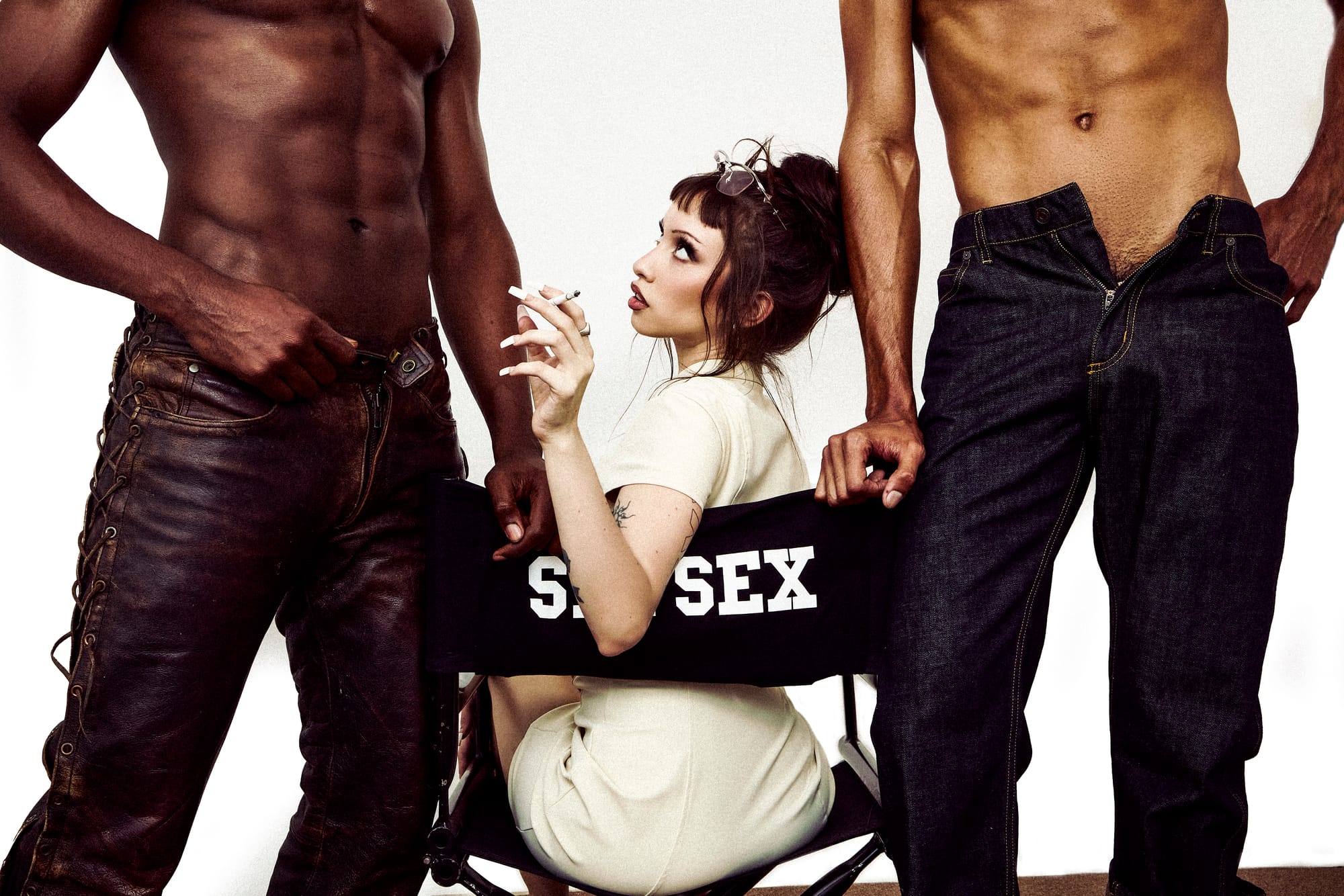
“I think that in a way we appropriated [the anthem] and said ‘we’re patriotic whores’”, she says of the viral moment. “When we were marching for the right to abortion in Argentina, it was also a thing that when you were outside you wouldn’t wear a lot of clothes, and that was also a protest. It’s saying ‘this is my body, I’m going to dress like this, and just because I did doesn’t mean that you get to violate me.’”
The cartoonish glee that Six Sex represents is drawn from her brashness, irreverently showcased in front of a stark white background, a piece of fine art. As much as she is a cheeky disruptor of the recent class of Latin American underground divas, she is an activator of parties and minds, the hot girl who picked up the big book but kept the pleasers strapped on tight.
Her animating force? Pleasure, of course.
“The truth is I’m not interested in stardom; I prefer that people know my music than my face,” she says of her ultimate goals. “My music is about having fun and leaving behind old beliefs so we can be animated toward something new. I’d love it if people opened themselves up to new forms of relating to one another and don’t stay on what was imposed upon us. I’m hungry to keep growing and to have a healthy relationship to my career, because it’s something that can consume you if you let it. My objective is to have a good time, do what I love, and that the people around me also have a good time. That’s why we make music, no?”
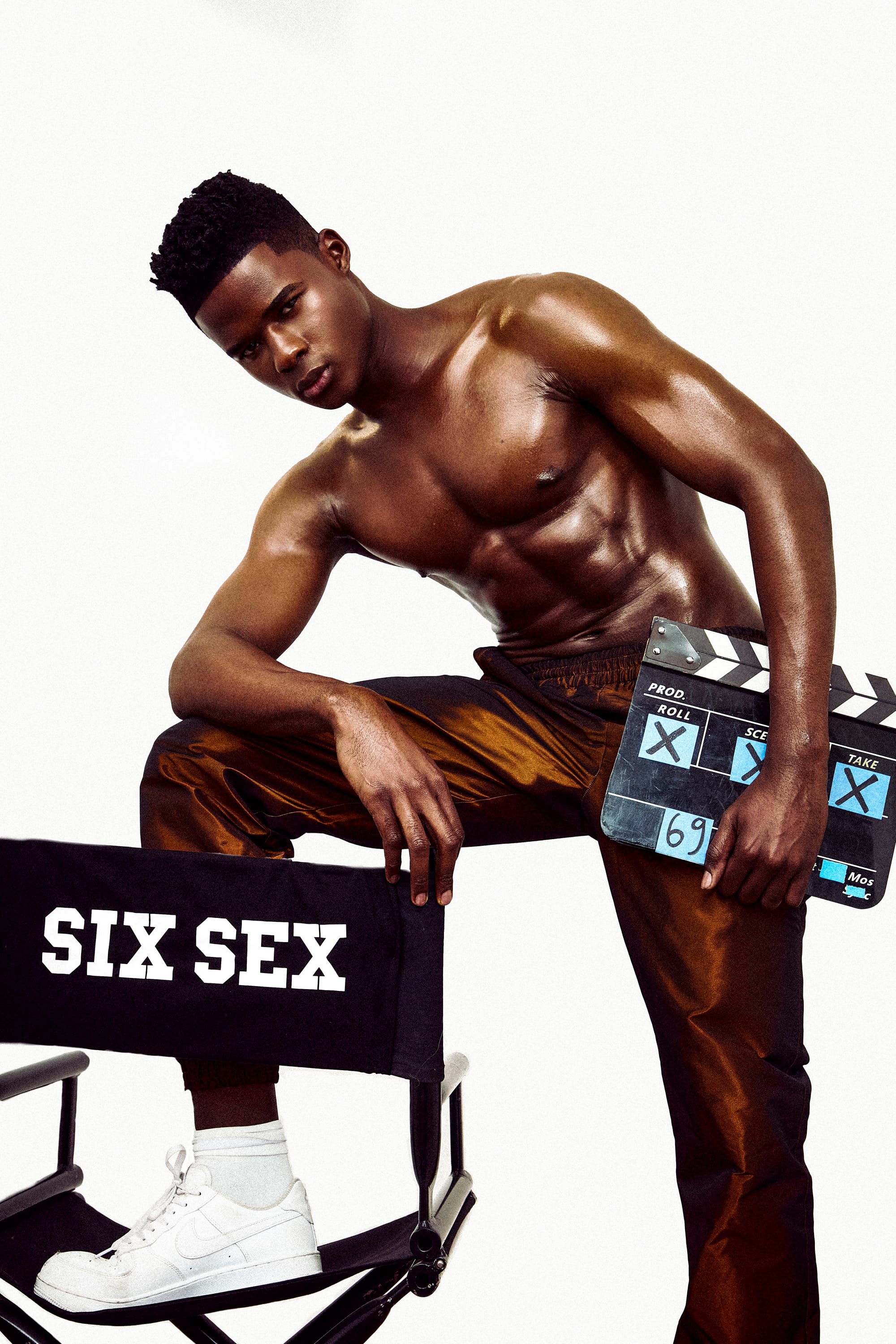
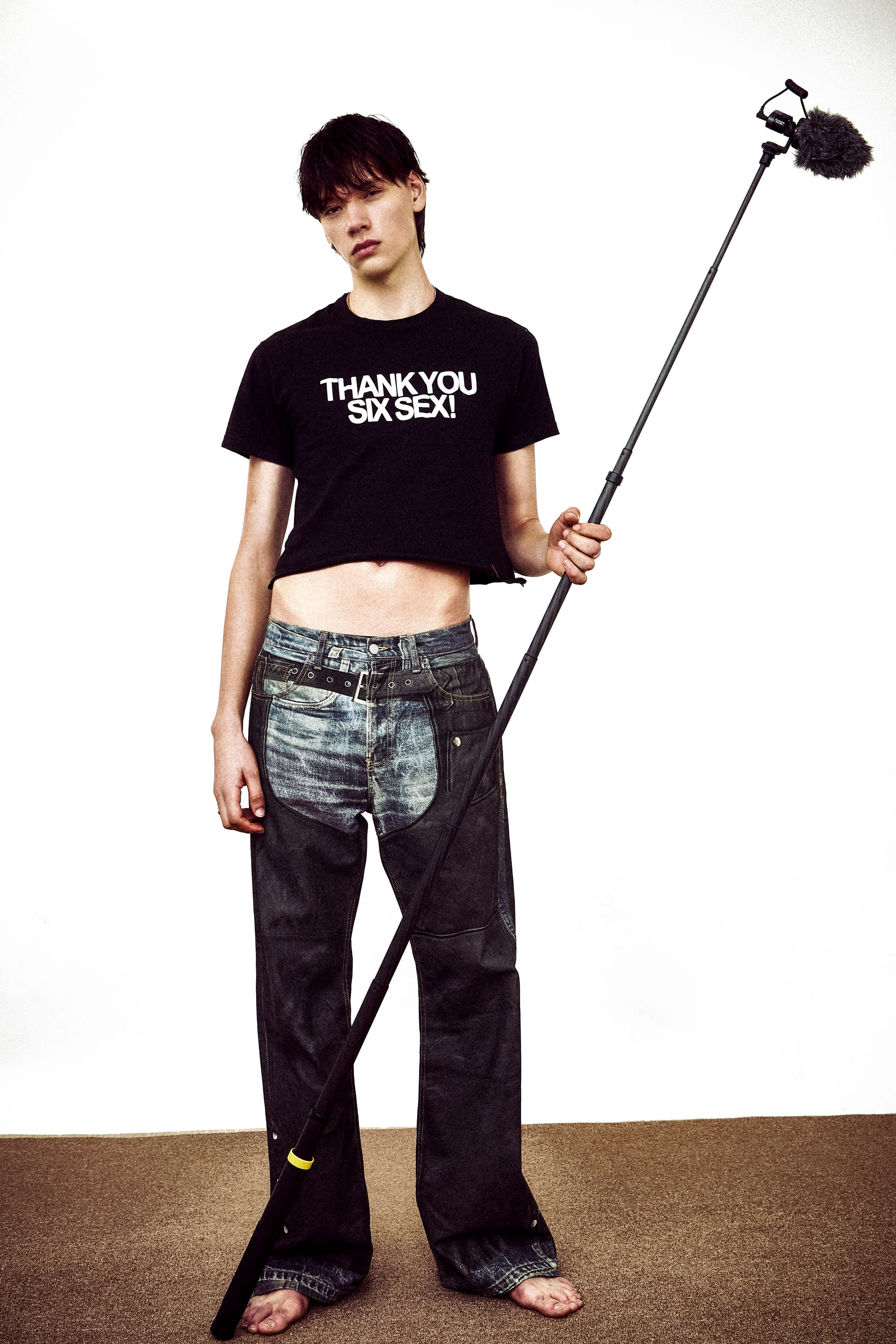
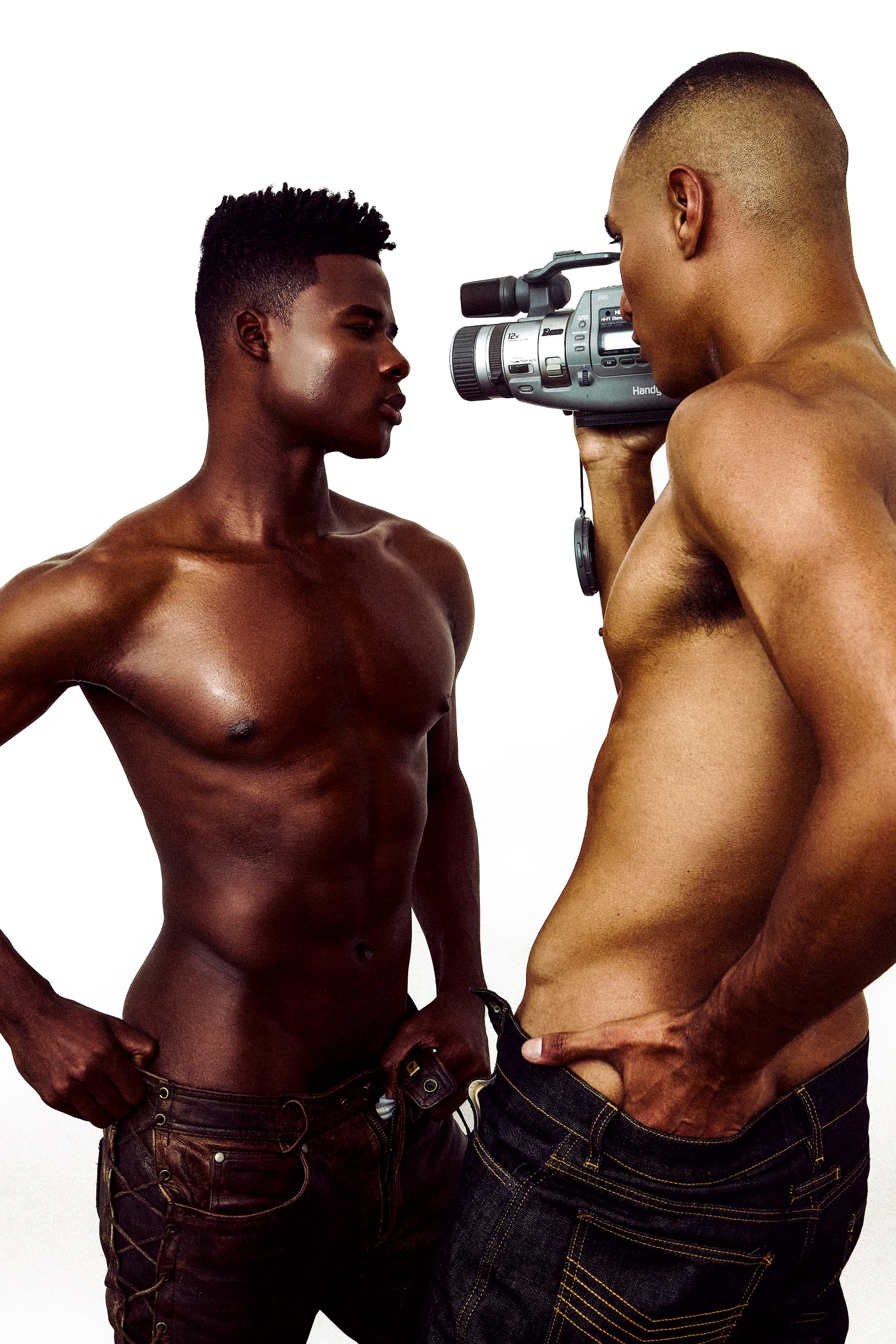
En Español: Six Sex habla sobre X-Sex, ser una “puta patriota”, y la liberación de la bimbo
Vos saliste del underground. Preparando las preguntas para nuestra entrevista, escuche el reportaje de Richard Villegas donde le dijiste que la primera vez que te imaginaste como en un escenario fue con el foco de la estrella pop, pensando en la audiencia. Ahora estás teniendo esos momentos —pienso en ese show grande que tuviste en CABA. ¿Cómo fue para ti llegar a ese momento?
Increíble. Nunca hice música apuntando al mainstream, pero sí es cierto que cuando uno llega a tantas personas y se reúnen a cantarte tus canciones, es como un shock. Había cosas que yo decía, “bueno, no sé si me van a cancelar, pero lo quiero hacer” – como cantar el himno con Fiah, Chita, Juana Rozas, y Vera Frod. Mi primer Niceto [Club], ellas estuvieron. No tenemos un tema todas juntas, y somos muy de cantar la Marcha de San Lorenzo. Primero se lo dije a [Leandro Vazquez, director creativo], y al principio no dimensionaba el peso que tenía que lo estemos cantando nosotras, sino el peso del himno en sí. Fue un momento increíble y todos los comentarios fueron muy positivos. Creo que fue también una forma de apropiarse de eso y decir “somos putas patriotas”.
El personaje de Six Sex de por sí tiene un humor medio pícaro, hasta con temas serios, y especialmente siendo argentina viviendo ahí durante Millei. Lo estaba pensando mucho en tu entrevista con Rolling Stone Argentina, donde denunciaste sus comentarios contra la comunidad queer. También hay quien teoriza el rave como un lugar político porque uno suelta las cosas que lo frustran en la vida cotidiana a punto de sudor. ¿Qué piensas de eso?
Mi mamá siempre me dijo que cada cosa que hacemos es política: cada decisión que tomamos, dónde nos paramos en frente a una injusticia, cuando pensamos que tenemos que alzar la voz. Lo mínimo que se podría hacer es salir a la calle a reclamar. Más allá de partidos, y sin buscar meterme tanto ahí, creo que por ser mujer y por haber vivido todo lo que viví, no me puedo hacer la boluda, ¿viste?
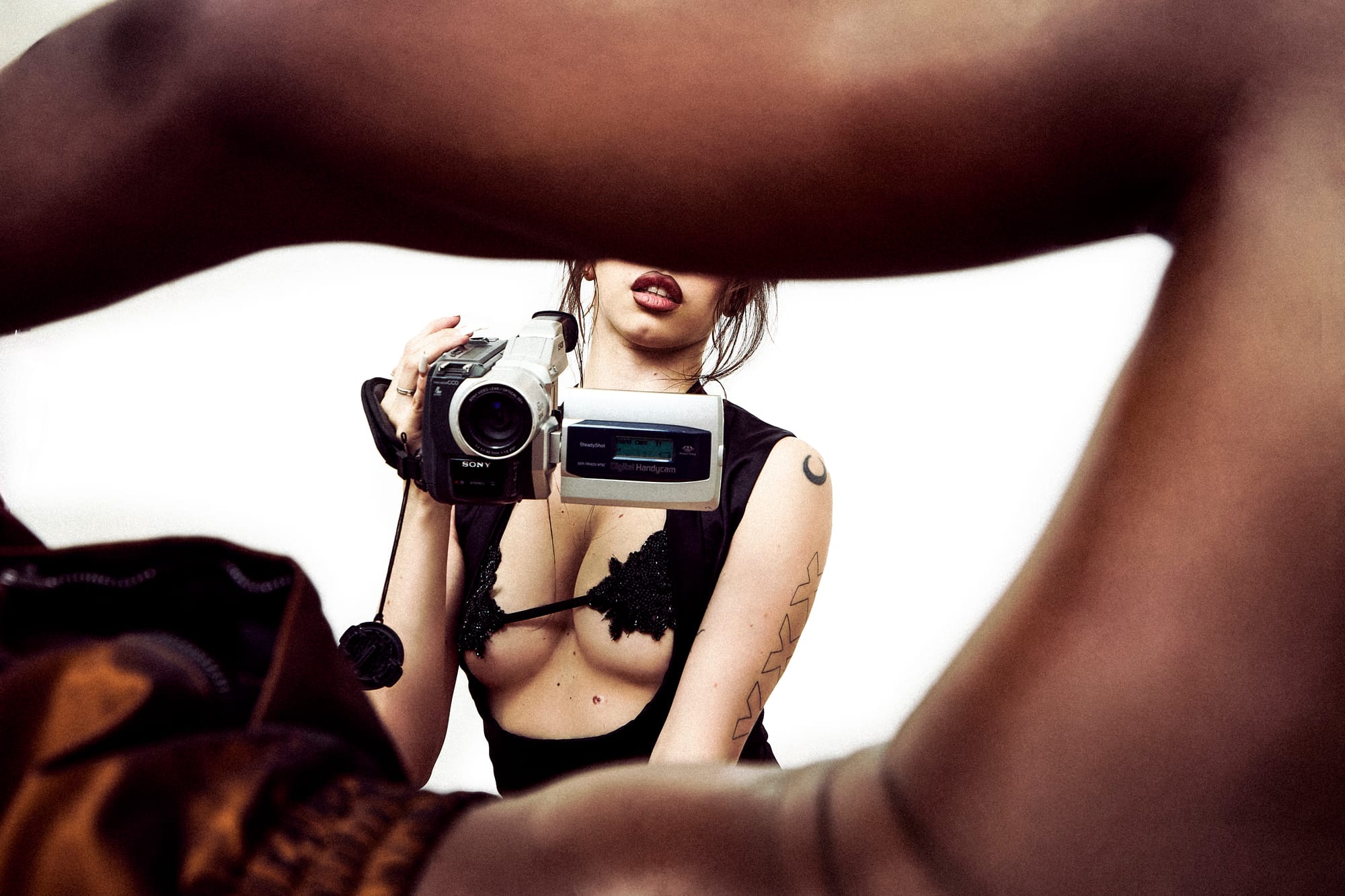
Hay quien dice también que el look de la bimbo es algo bastante político. Una palabra que siempre fue un insulto contra la mujer coqueta – y la implicación que también debería ser tonta – ahora se convirtió en una reclamación feminista. Veo tu obra y pienso mucho en esa movida. En inglés, la palabra sería “bimbofication”.
100% sí. El hecho de que una mujer elija cómo vestirse ya es algo, sobre todo porque está tan puesta en duda. Acá también cuando fue la marcha del aborto creo que siempre fue así, que vas a salir a la calle y muchas veces te desnudas y es también como un reclamo. Es decir “este es mi cuerpo, me voy a vestir así, y porque me vista así no me tenés que violar.” Siempre al usar a la mujer como objeto de deseo, la gente tiene una idea muy corta de lo que puede empezar y terminar ahí. Se dice “estaba desnuda porque me estaba provocando,” y lo último que se dice es “ella se quiere vestir así.”
Me interesa la tensión del perreo como un espacio donde la mujer fue tan objetificada ahora volviéndose algo donde the ones who run shit are femmes vestidas risqué. Toda la vuelta del Latin Club, neoperreo, y estos nuevos subgéneros del reggaeton se han liderado por artistas queer, trans, y por mujeres – pensando en Ivy Queen, cuando el reggaeton que ahora domina la radio todavía era tabú y underground, eso siempre ha sido el caso. Tus comienzos vienen de un under más electrónico, aunque siempre con elementos de reggaeton y dembow. En X-Sex, regresas mas a esas raíces del techno.
Estaba como ya un poco aburrida de hacer reggaetón. Fantasy fue el primer EP; después Area 69, que es más reggaeton alternativo. 6X vendría a ser más reggaeton directo, y Satisfire fui yo jugandomela a ver que pasa. También confiaba que ese sonido se iba a empezar a escuchar más, y después de eso salió Brat. El conjunto de esas cosas hizo también que la gente que escucha más música mainstream tengan el oído más abierto a otro tipo de música electrónica, como en este EP, donde intenté explorar géneros donde no estoy tan acostumbrada. Le metí más al pop e intenté matchearlo con electrónica, tipo “Performance Actitud (Pose)”, o “Ahhhhhh”, que es más techno.
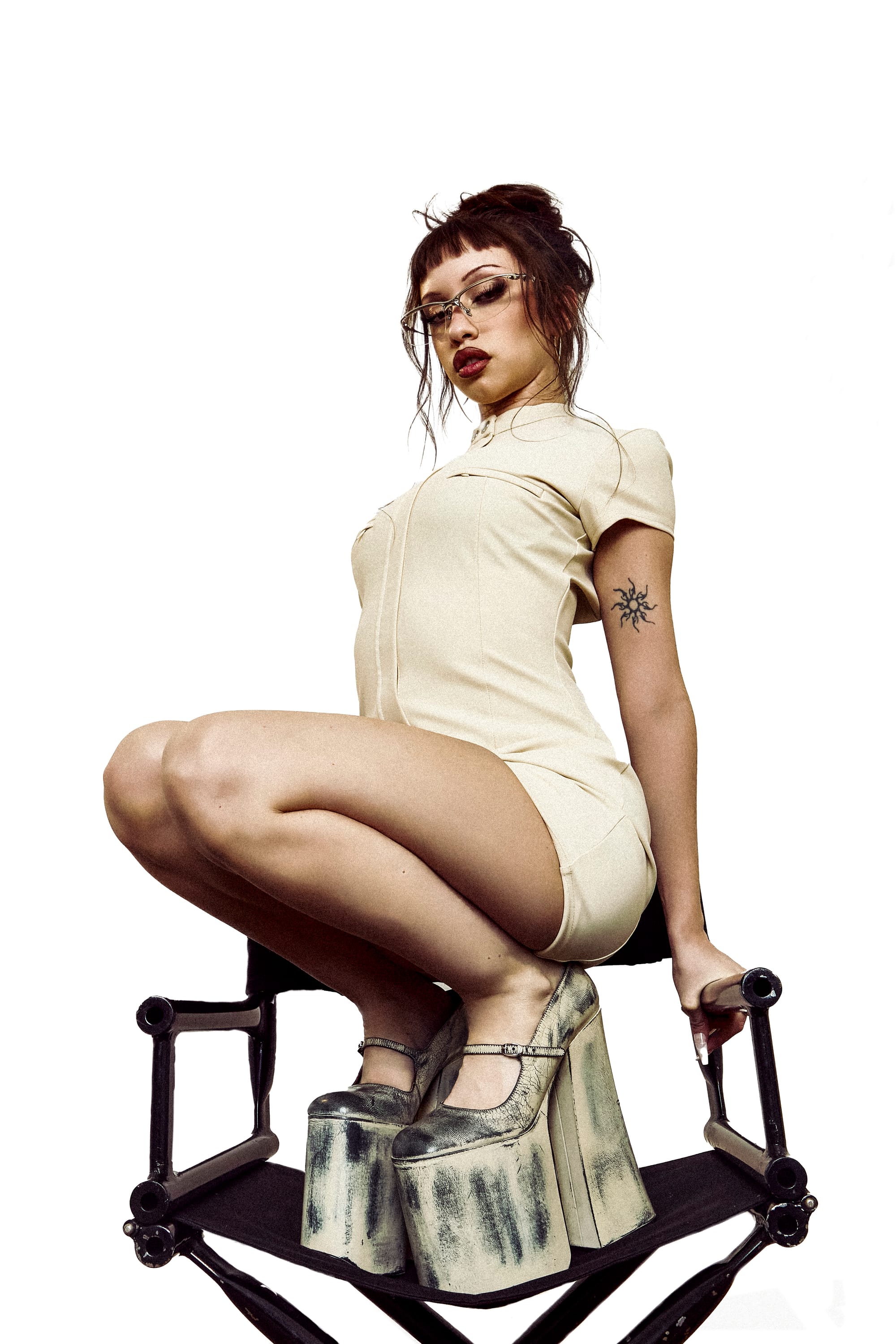
También está más aparente que nunca la propuesta audiovisual: esa estética minimalista en el espacio blanco.
Queríamos generar este espacio de no-lugar, ir a un estudio y generar el espacio que sea. Todo salió de que yo estaba viajando mucho y tomaba muchos aviones cortos que tenían enfrente de mi asiento las instrucciones. Eran una hoja blanca con palabritas en negro, una flecha roja de donde tenías que salir, otra flecha que te decía tal otra cosa. Les empecé a sacar fotos y Lea no había venido conmigo y le mandaba fotos y le decía, “esto es el EP nuevo.” De ahí desarrollamos “U&ME”, que tiene las flechitas, y “Tócame” que tiene las indicaciones.
“How to Make Your Ass Bigger,” también; toda la estructura de esa canción es una clase estilo Jane Fonda.
También queríamos jugar con el doble sentido. En “U&ME”, cuando la cámara se aleja y en realidad estoy inflando globos para que después los twins se peleen con las espadas de globos. O en “Tócame”, donde al final estoy haciendo el RCP. Quería ver hasta dónde llega también la cabeza. También iba a ser el EP donde estaba vestida, teniendo tipo “high fashion bitch” moments. Es por eso también hacer todo en un estudio blanco y generar el no-espacio. Estoy muy contenta con cómo quedó, y fue el primer EP que trabajamos más mano a mano con Lean y armamos todo con un equipo atrás.
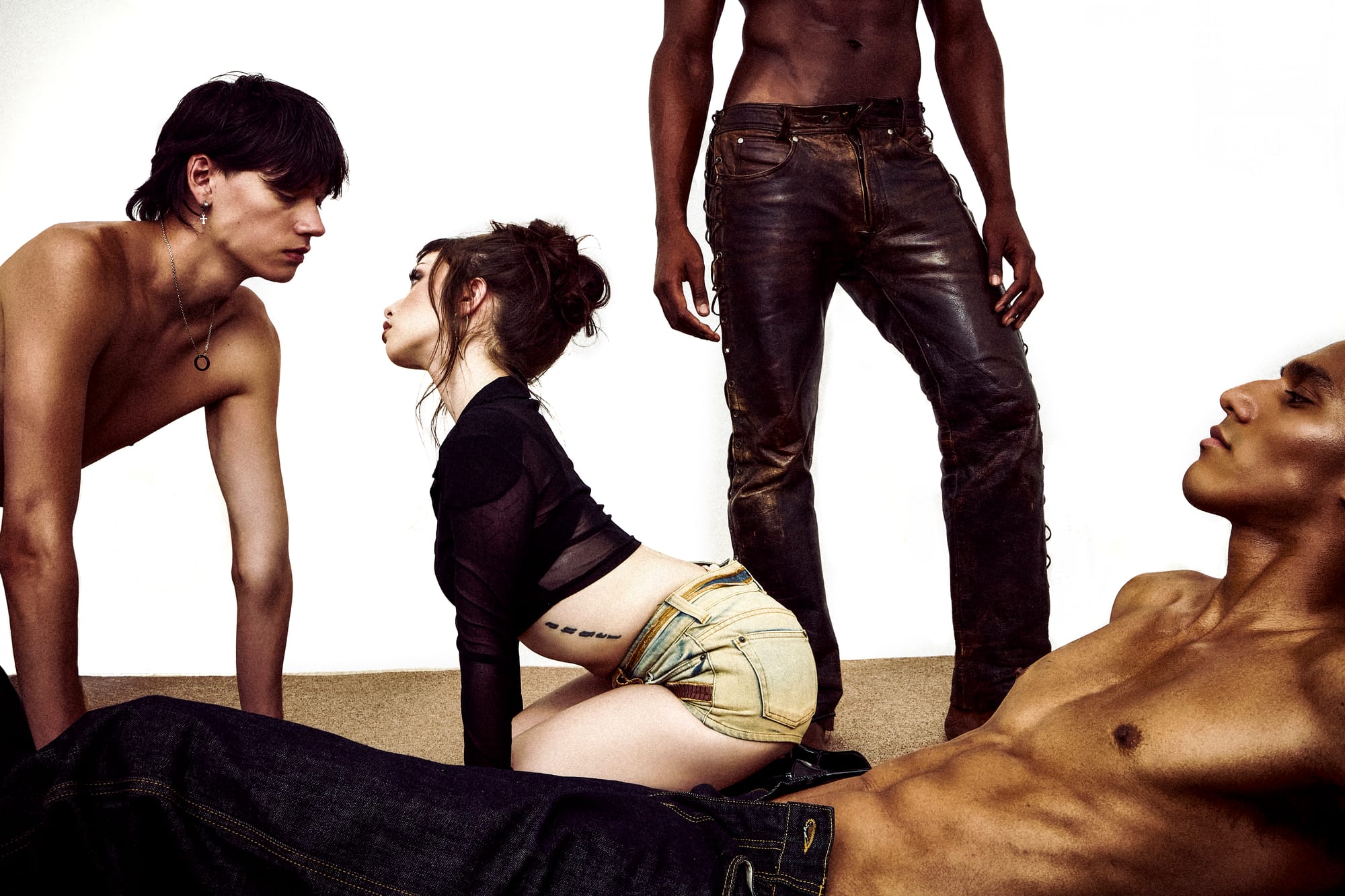
A mi me encanta lo que dices del no-espacio. Le da la oportunidad a la gente para proyectar sus propias ideas. Me acuerdo que vi un meme diciendo que el video de “Tócame” era si la ketamina llegó a Lazytown.
Justo en ese video le hacemos referencia a un tema de Dillom donde dice “Jalando popper con los gays”. En el video de [“U&ME”] canto “my boyfriend is gay”, y de golpe la cámara se aleja y estoy yo con mi novio gay, que está con su novio gay. Entonces, hicimos la misma escena con Dillom y le tomamos un popper. Entonces, es como medio solo para entendidos. Porque los que entendieron, vieron la doble referencia.
Gaspar Noé, con poppers.
Literal.
